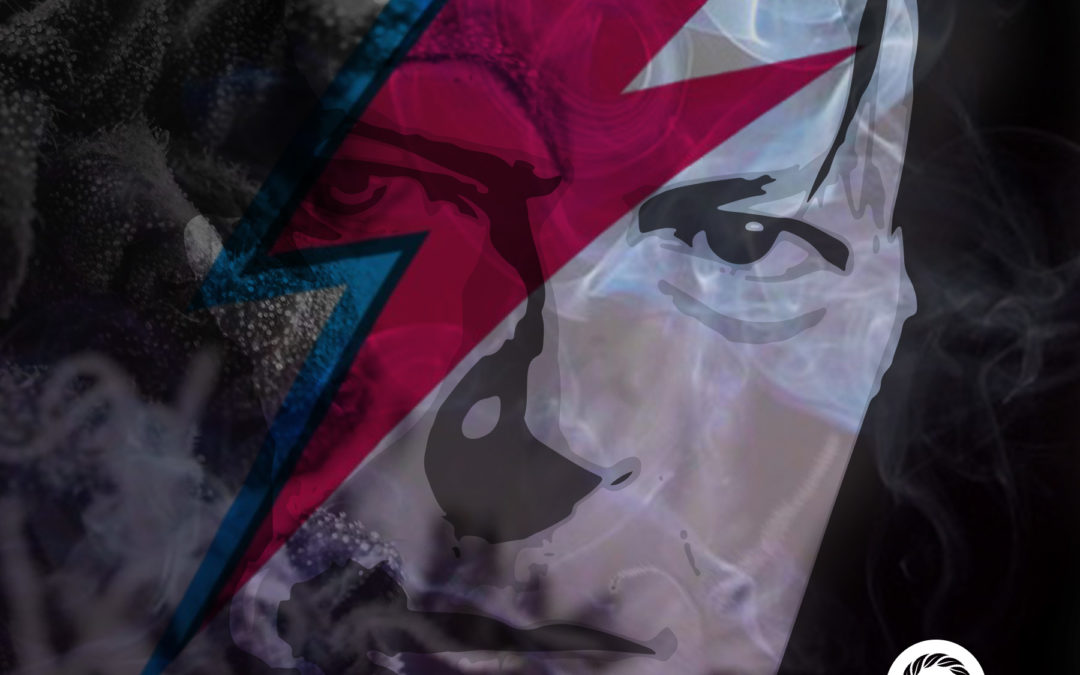I do miss David Bowie.
I miss knowing that such a creative force could at any time give the rest of us something to enjoy. And perhaps more importantly, I miss the light he would shine on the unknown. He was a trailblazer. I feel the same way about Steve Jobs. I am fairly certain cannabis facilitated the creative process in these pioneers.
Are we not all pioneers in our personal journey through life? Perhaps cannabis can help us on our journey. Perhaps not. Everyone should therefore ask:
Is cannabis likely to help me?
The other question we are required to ask is whether a given patient ‘qualifies’ for medical cannabis. As most of our readership knows, medical cannabis (aka medical marijuana; MMJ) is legal in for use in Florida if a ‘qualified physician’ registers a ‘qualified patient’ with the Office of Medical Marijuana Use (OMMU). The process of registration includes a face-to-face visit with the doctor, interview, examination, and online information sharing with OMMU. The process continues with the submission of an application to the OMMU. Completing this application correctly is not a simple task. Although you may qualify, an incorrect application voids your ability to acquire MMJ.
At Neurology of Cannabis we complete the application for you.
All Floridians will therefore fall into one of these four categories. Imagine a 2×2 Punnett square.
- qualifies and needs Cannabis
- qualifies and does not need Cannabis
- does not qualify, but needs Cannabis
- does not qualify and does not need Cannabis.
So how do we determine if someone ‘qualifies’ and if someone ‘needs’?
Fortunately, we can usually make this determination during a ‘free consultation’ phone conversation. This type of screening phone call helps ensure that appropriate patients are scheduled for a clinic visit. This process saves time and money. If an interested patient is scheduled and comes into the clinic but does not qualify, there is no charge to the patient; no harm, no foul. Interested patients may call 941-600-9055 for that consultation. Naturally, scheduled patients are again interviewed during their scheduled appointment to confirm that they are appropriate candidates for medical cannabis.
All Floridians who fall into category #3 above take heart. Eventually the qualification rules set forth by our concerned lawmakers in Tallahassee will go away. The evolution of MMJ regulations in Florida is underway and will eventually lead us to more appropriate assignment of medical responsibility; physicians, not politicians, will decide if a given patient might benefit from medical cannabis. Furthermore, we believe that within the next 6 years, Florida will become an ‘adult use state’ (aka recreational) and individuals will have the freedom to acquire cannabis without the approval of a physician or lawmaker.
Back to the question at hand: “Is cannabis likely to help me?”
The short answer is YES. Cannabis is likely to help each of us at some point in time.
The reason lies in the complexity of the Endocannabinoid System (ECS) and the challenges of everyday life.
The ECS is our own biological machinery for maintaining homeostasis, or balance. The ECS consists of endocannabinoid molecules, endocannabinoid receptors and the enzymes which build-up and break-down the endocannabinoid molecules.
These endocannabinoid molecules are found everywhere in our bodies, from skin to skeleton, and they function 24/7 to prevent disease and promote wellness. These internal molecules work like keys in a biological lock to effect physiological changes. The locks are called endocannabinoid receptors. These same locks are opened and closed by THC and CBD, two of the active molecules in MMJ. THC and CBD are phytocannabinoids. To summarize; endocannabinoids occur naturally in our bodies and phytocannabinoids are produced by the cannabis plant.
Supplementing our own ECS with phytocannabinoids is useful when there is a genetic deficiency of our own endocannabinoids or our own ECS is insufficient to ward off Industrial Disease. In the next Blog installment, I will expound on these concepts of endocannabinoid deficiency (Ethan Russo, MD) and industrial disease (Mark Knopfler, Dire Straits). Until then, remember:
Few are those who can keep their mind and body in balance when confronted with industrial disease. For the rest of us, tuning the ECS with a dose of cannabis is just what the doctor ordered.

